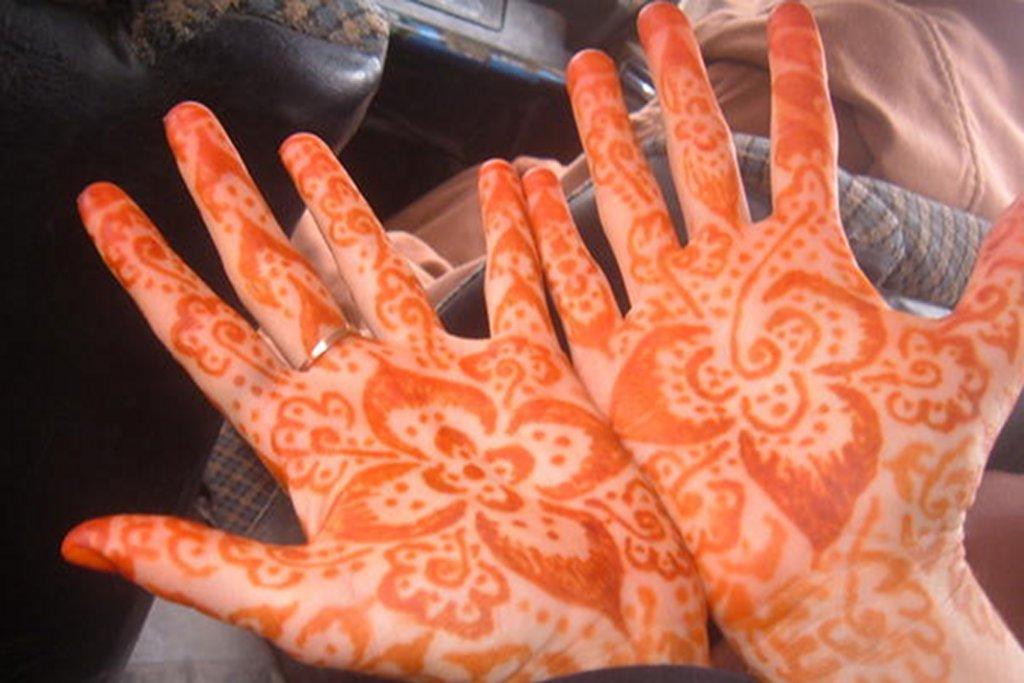FDA warns against temporary ‘black henna’ tattoos
Returned Volunteer Stacey Ferguson gets Henna done on her hands during her time working at as Maternal and Child Health volunteer in Morocco, 2005-2007.
The FDA has warned that an ingredient commonly used in temporary henna tattoos can cause nasty allergic reactions in some people.
According to the FDA, an extra ingredient in longer-lasting "black henna" tattoos — hair dye including p-phenylenediamine, or PPD — can cause allergic reactions that include redness, blisters, oozing lesions, increased sensitivity to sunlight and permanent scarring. Reactions can occur right after the tattoo is applied to the surface of the skin or up to two or three weeks later.
Henna is a reddish-brown pigment that comes from Lawsonia inermis, a flowering plant native to the tropical and subtropical regions of Africa and Asia. Natural henna has been used as a cosmetic and a dye for hair and fabrics for thousands of years, but "black henna" is a different product that may not include natural henna at all. It is most often used in tourist destinations and includes PPD in order to make the temporary tattoos darker and longer lasting.
More from GlobalPost: (PHOTOS): Religious freedom flourishing in small India village
"The main difference between regular henna and 'black' henna is that a mix of other ingredients with henna is used to darken the color of the temporary tattoo," said FDA spokeswoman Tamara Ward in an email to NBC News. "Ingredients may include coal-tar hair dye containing p-phenylenediamine (PPD), an ingredient that can cause dangerous skin reactions in some people.
"You may see 'black henna' used in places such as temporary tattoo kiosks at beaches, boardwalks, and other holiday destinations, as well as in some ethnic or specialty shops," Ward continued. "Depending on where you are, though, it's possible no one is checking to make sure the artist is following safe practices or even knows what may be harmful to consumers."
The FDA included stories and photos of those affected by the PPD henna tattoos, including that of a five-year-old girl who ended up with severe reddening on her forearm and a 17-year-old girl who had a reaction that included fluid-filled blisters.
Every day, reporters and producers at The World are hard at work bringing you human-centered news from across the globe. But we can’t do it without you. We need your support to ensure we can continue this work for another year.
Make a gift today, and you’ll help us unlock a matching gift of $67,000!
